Humanitarian Free and Open Source Software (HFOSS)
See the following -
Kaazing Unveils DisasterAWARE ENTERPRISE™ Real Time Risk Intelligence Platform For Businesses Worldwide
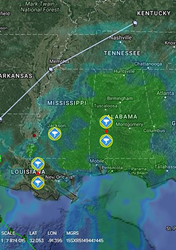 With new records being set each year for natural disaster losses, enterprises face an ever-increasing need to be prepared. For decades, DisasterAWARE has served the needs of top agencies worldwide, including U.S. Department of Defense, Homeland Security FEMA, the United Nations, the Association of Southeast Asian Nations (ASEAN), and a variety of international humanitarian aid organizations. With over 1.7 million users of DisasterAWARE mobile app, Disaster Alert for the public, spanning 115 international organizations, Kaazing is helping to broaden the reach of this critical, life-saving technology to provide businesses with an enterprise-grade solution.
With new records being set each year for natural disaster losses, enterprises face an ever-increasing need to be prepared. For decades, DisasterAWARE has served the needs of top agencies worldwide, including U.S. Department of Defense, Homeland Security FEMA, the United Nations, the Association of Southeast Asian Nations (ASEAN), and a variety of international humanitarian aid organizations. With over 1.7 million users of DisasterAWARE mobile app, Disaster Alert for the public, spanning 115 international organizations, Kaazing is helping to broaden the reach of this critical, life-saving technology to provide businesses with an enterprise-grade solution.
- Login to post comments
11 Ways To Get Involved With Humanitarian FOSS
 Lending a digital hand for humanitarian projects is just a click away. Whether you have five minutes or a few hours, you can make a difference with a variety of Humanitarian Free and Open Source Software (HFOSS) projects. The level of skills required vary from web search, verification, mapping, translation, training, and open source software development. Along the journey of changing the world, you can meet like minds and hone your skills. The key is to ask yourself: What do I want to do? How can I get started? How can I find the right project and community?
Lending a digital hand for humanitarian projects is just a click away. Whether you have five minutes or a few hours, you can make a difference with a variety of Humanitarian Free and Open Source Software (HFOSS) projects. The level of skills required vary from web search, verification, mapping, translation, training, and open source software development. Along the journey of changing the world, you can meet like minds and hone your skills. The key is to ask yourself: What do I want to do? How can I get started? How can I find the right project and community?
- Login to post comments
5 Reasons Professors Should Encourage Students to Get Involved in Open Source Projects
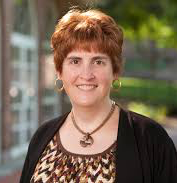 I've been supporting student participation in humanitarian free and open source software (HFOSS) projects for over a decade. I've seen students get motivated and excited by working in a professional community while they learn and mature professionally. Out of the many reasons for supporting student participation in open source, here are five of the most compelling reasons...
I've been supporting student participation in humanitarian free and open source software (HFOSS) projects for over a decade. I've seen students get motivated and excited by working in a professional community while they learn and mature professionally. Out of the many reasons for supporting student participation in open source, here are five of the most compelling reasons...
- Login to post comments
Coders to Learn How to Deploy Humanitarian-Focused Apps on Openstack
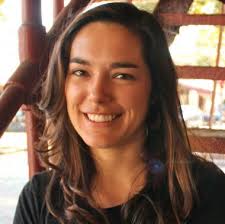 Dana and I are passionate about making open source communities inclusive and welcoming. The codeathon is a terrific opportunity for us to be tour guides for women of all backgrounds as they explore open source projects like OpenStack. [Dana Bauer]: I love the humanitarian focus at Open Source Day. Egle and I are demonstrating how to deploy humanitarian-focused applications on OpenStack, and it's exciting to think that some of those apps could be the first steps toward making a difference in the world...
Dana and I are passionate about making open source communities inclusive and welcoming. The codeathon is a terrific opportunity for us to be tour guides for women of all backgrounds as they explore open source projects like OpenStack. [Dana Bauer]: I love the humanitarian focus at Open Source Day. Egle and I are demonstrating how to deploy humanitarian-focused applications on OpenStack, and it's exciting to think that some of those apps could be the first steps toward making a difference in the world...
- Login to post comments
Launching With Social Coding 4 Good @OSCON
We are proud to announce that Ushahidi has begun a partnership with Social Coding 4 Good to build our developer community. Read More »
- Login to post comments
Lessons from the Use of Open Source and Open Data in Nepal's Earthquake Relief
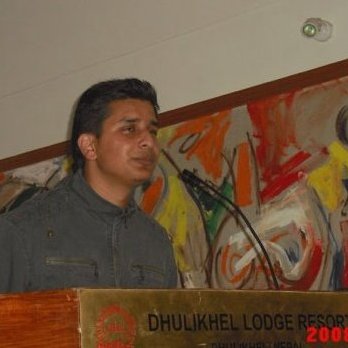 The power of an open source project like OpenStreetMap during a crisis like Nepal's earthquake is undeniable, and I had the opportunity to see it up close and personal. I worked with the Kathmandu Living Labs team, where I observed thousands of local and international volunteers collaborating to create data and tools. Responding agencies used the team's work to plan and execute their operations. The philosophy of Kathmandu Living Labs is that by collaboratively building upon existing work, we will reach much further and have a far greater impact than working on problems individually and from scratch...
The power of an open source project like OpenStreetMap during a crisis like Nepal's earthquake is undeniable, and I had the opportunity to see it up close and personal. I worked with the Kathmandu Living Labs team, where I observed thousands of local and international volunteers collaborating to create data and tools. Responding agencies used the team's work to plan and execute their operations. The philosophy of Kathmandu Living Labs is that by collaboratively building upon existing work, we will reach much further and have a far greater impact than working on problems individually and from scratch...
- Login to post comments
Mozilla Announces Second Set of COVID-19 Solutions Fund Recipients
 Innovations spanning food supplies, medical records and PPE manufacture were today included in the final three awards made by Mozilla from its COVID-19 Solutions Fund. The Fund was established at the end of March by the Mozilla Open Source Support Program (MOSS), to offer up to $50,000 each to open source technology projects responding to the COVID-19 pandemic. In just two months, the Fund received 163 applicants from 30 countries and is now closed to new applications.
Innovations spanning food supplies, medical records and PPE manufacture were today included in the final three awards made by Mozilla from its COVID-19 Solutions Fund. The Fund was established at the end of March by the Mozilla Open Source Support Program (MOSS), to offer up to $50,000 each to open source technology projects responding to the COVID-19 pandemic. In just two months, the Fund received 163 applicants from 30 countries and is now closed to new applications.
- Login to post comments
Mozilla Announces the First Set of COVID-19 Solutions Fund Recipients
 In less than two weeks, Mozilla received more than 160 applications from 30 countries for its COVID-19 Solutions Fund Awards. Today, the Mozilla Open Source Support Program (MOSS) is excited to announce its first three recipients. This Fund was established at the end of March, to offer up to $50,000 each to open source technology projects responding to the COVID-19 pandemic...In the coming weeks Mozilla will announce the remaining winning applicants. The application form has been closed for now, owing to the high number of submissions already being reviewed.
In less than two weeks, Mozilla received more than 160 applications from 30 countries for its COVID-19 Solutions Fund Awards. Today, the Mozilla Open Source Support Program (MOSS) is excited to announce its first three recipients. This Fund was established at the end of March, to offer up to $50,000 each to open source technology projects responding to the COVID-19 pandemic...In the coming weeks Mozilla will announce the remaining winning applicants. The application form has been closed for now, owing to the high number of submissions already being reviewed.
- Login to post comments
Mozilla Open Source Support Launches COVID-19 Solutions Fund
 Mozilla is announcing today the creation of a COVID-19 Solutions Fund as part of the Mozilla Open Source Support Program (MOSS). Through this fund, we will provide awards of up to $50,000 each to open source technology projects which are responding to the COVID-19 pandemic in some way. The MOSS Program, created in 2015, broadens access, increases security, and empowers users by providing catalytic funding to open source technologists. We have already seen inspiring examples of open source technology being used to increase the capacity of the world's healthcare systems to cope with this crisis.
Mozilla is announcing today the creation of a COVID-19 Solutions Fund as part of the Mozilla Open Source Support Program (MOSS). Through this fund, we will provide awards of up to $50,000 each to open source technology projects which are responding to the COVID-19 pandemic in some way. The MOSS Program, created in 2015, broadens access, increases security, and empowers users by providing catalytic funding to open source technologists. We have already seen inspiring examples of open source technology being used to increase the capacity of the world's healthcare systems to cope with this crisis.
- Login to post comments
New Open Source Program Director Supports Students' Passions at the Rochester Institute of Technology
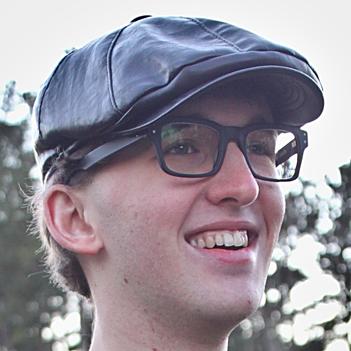 The Rochester Institute of Technology (RIT) is well-known for its work in open source software through FOSS@MAGIC. In April 2014, RIT started to offer a minor in free and open source software. Students work on several different open source projects in their GitHub organization. One of the courses in the minor, Humanitarian Free and Open Source Software Development, has students work with the One Laptop per Child XO laptops. Students create games that help teach New York and Massachusetts fourth grade math curriculum. Dan Schneiderman is the new head of the FOSS@MAGIC program at RIT...
The Rochester Institute of Technology (RIT) is well-known for its work in open source software through FOSS@MAGIC. In April 2014, RIT started to offer a minor in free and open source software. Students work on several different open source projects in their GitHub organization. One of the courses in the minor, Humanitarian Free and Open Source Software Development, has students work with the One Laptop per Child XO laptops. Students create games that help teach New York and Massachusetts fourth grade math curriculum. Dan Schneiderman is the new head of the FOSS@MAGIC program at RIT...
- Login to post comments
thinkWhere Supports Global Humanitarian Project to Map Disaster Areas
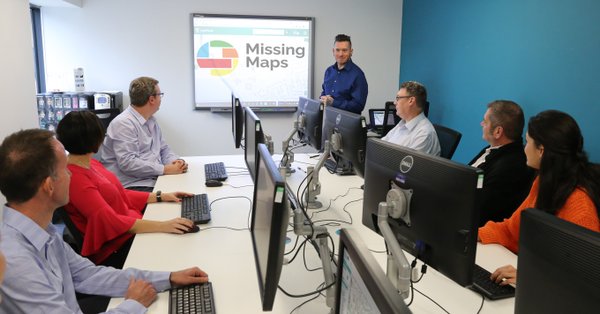 Geographic information and technology specialist thinkWhere is supporting the global humanitarian Missing Maps project by hosting a series of mapathons in Stirling, Scotland. In the evening of 13th June 2018, around 50 local community volunteers, including members of the thinkWhere team, will collaborate on a crowd-sourced Missing Maps data capture project. The fourth event of its kind organised by thinkWhere, it will be the first to be held at the company’s new premises at CodeBase, Stirling.
Geographic information and technology specialist thinkWhere is supporting the global humanitarian Missing Maps project by hosting a series of mapathons in Stirling, Scotland. In the evening of 13th June 2018, around 50 local community volunteers, including members of the thinkWhere team, will collaborate on a crowd-sourced Missing Maps data capture project. The fourth event of its kind organised by thinkWhere, it will be the first to be held at the company’s new premises at CodeBase, Stirling.
- Login to post comments
Ushahidi Blog - August 2013
[Selected excerpts from the Ushahidi Blog] According to Jean Brice, "We will start to use the Ushahidi platform for the upcoming Elections in Cameroon. Read More »
- Login to post comments
Humanitarian Free And Open Source Software - The Benefits Of "Doing Good"
The University of British Columbia will hold a one-night event on Humanitarian Free and Open Source Software (HFOSS) intended for an audience of Computer Science instructors and students. Heidi J.C. Ellis, a professor at Western New England University, will give a presentation entitled “Humanitarian Free and Open Source Software - The Benefits of ‘Doing Good’”. The abstract for her talk can be found on UBC’s website. Humanitarian Free and Open Source Software (HFOSS) affords students ___ opportunities for learning and provides a number of ways for students to participate, as Ellis will show during her presentation...
- Login to post comments
Missing Maps Stirling Mapathon
Geographic information and technology specialist thinkWhere is supporting the global humanitarian Missing Maps project by hosting a series of mapathons in Stirling, Scotland. In the evening of 13th June 2018, around 50 local community volunteers, including members of the thinkWhere team, will collaborate on a crowd-sourced Missing Maps data capture project. The fourth event of its kind organised by thinkWhere, it will be the first to be held at the company’s new premises at CodeBase, Stirling.
- Login to post comments